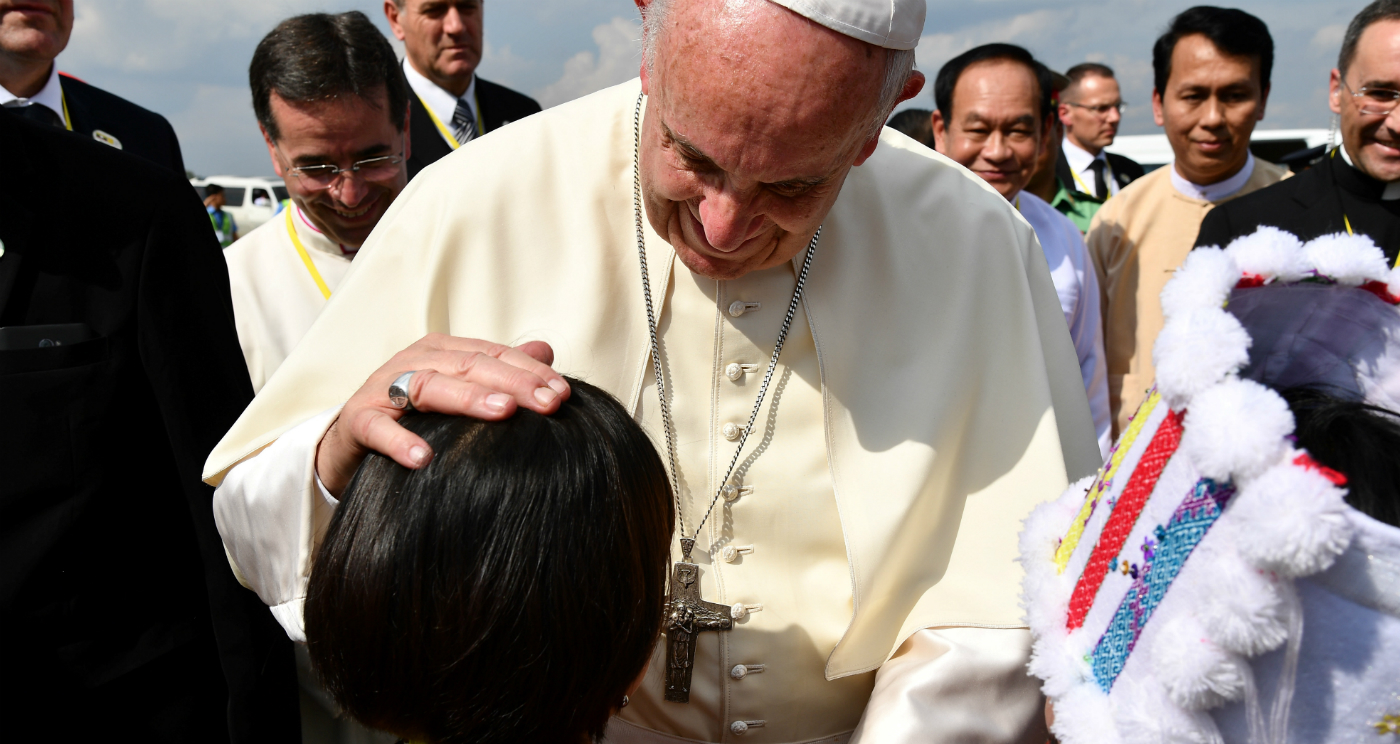Pope Francis wants change to Lord’s Prayer
Pontiff says current version is a mistranslation as God does not lead humans to sin

A free daily email with the biggest news stories of the day – and the best features from TheWeek.com
You are now subscribed
Your newsletter sign-up was successful
Pope Francis says he wants to change the wording of the Lord’s Prayer as the text implies God “induces temptation” and is a mistranslation of the original Greek text.
The offending phrase, says the pontiff, is “lead us not into temptation” - he prefers “do not let us fall into temptation”, BBC News reports.
The implication in the Lord’s Prayer as it now stands is “awkward” for Christians, as it seems to attribute blame to God, says Sky News. The pontiff made his remarks during an interview with TV2000, an Italian Catholic TV channel, on Wednesday.
The Week
Escape your echo chamber. Get the facts behind the news, plus analysis from multiple perspectives.

Sign up for The Week's Free Newsletters
From our morning news briefing to a weekly Good News Newsletter, get the best of The Week delivered directly to your inbox.
From our morning news briefing to a weekly Good News Newsletter, get the best of The Week delivered directly to your inbox.
The Lord’s Prayer is considered a perfect summary of the Gospels, but there are differing opinions about how to translate the Greek used in the original New Testament. The Spanish have switched the phrase to “don’t let us fall into temptation”, while the Italians say “don’t abandon us to temptation”, The Times reports.
The French solution is to use “do not let us fall into temptation” - a translation favoured by the Pope, because it implies the fault would be human, according to the Daily Mail.
The original text was written in Aramaic, the language believed to have been spoken by Jesus.
New editions and translations of the Bible have been plagued with errors, The Daily Telegraph reports. The 1611 version of Robert Barker’s King James Bible mistakenly omitted the word “not” from one of the Ten Commandments, which read: “Thou shalt commit adultery.”
A free daily email with the biggest news stories of the day – and the best features from TheWeek.com
-
 Why is the Trump administration talking about ‘Western civilization’?
Why is the Trump administration talking about ‘Western civilization’?Talking Points Rubio says Europe, US bonded by religion and ancestry
-
 Quentin Deranque: a student’s death energizes the French far right
Quentin Deranque: a student’s death energizes the French far rightIN THE SPOTLIGHT Reactions to the violent killing of an ultraconservative activist offer a glimpse at the culture wars roiling France ahead of next year’s elections
-
 Secured vs. unsecured loans: how do they differ and which is better?
Secured vs. unsecured loans: how do they differ and which is better?the explainer They are distinguished by the level of risk and the inclusion of collateral
-
 Epstein files topple law CEO, roil UK government
Epstein files topple law CEO, roil UK governmentSpeed Read Peter Mandelson, Britain’s former ambassador to the US, is caught up in the scandal
-
 Iran and US prepare to meet after skirmishes
Iran and US prepare to meet after skirmishesSpeed Read The incident comes amid heightened tensions in the Middle East
-
 Israel retrieves final hostage’s body from Gaza
Israel retrieves final hostage’s body from GazaSpeed Read The 24-year-old police officer was killed during the initial Hamas attack
-
 China’s Xi targets top general in growing purge
China’s Xi targets top general in growing purgeSpeed Read Zhang Youxia is being investigated over ‘grave violations’ of the law
-
 Panama and Canada are negotiating over a crucial copper mine
Panama and Canada are negotiating over a crucial copper mineIn the Spotlight Panama is set to make a final decision on the mine this summer
-
 Why Greenland’s natural resources are nearly impossible to mine
Why Greenland’s natural resources are nearly impossible to mineThe Explainer The country’s natural landscape makes the task extremely difficult
-
 Iran cuts internet as protests escalate
Iran cuts internet as protests escalateSpeed Reada Government buildings across the country have been set on fire
-
 US nabs ‘shadow’ tanker claimed by Russia
US nabs ‘shadow’ tanker claimed by RussiaSpeed Read The ship was one of two vessels seized by the US military